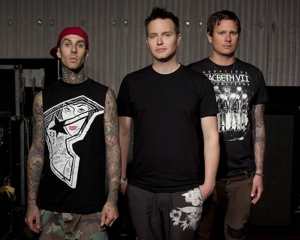This morning it was announced that Brown's world tour One Hell of a Night would visit New Zealand in December. However, Brown's violent past may mean he cannot get into the country.
Brown performed two sold-out shows in New Zealand in 2008. A year later he viciously attacked Rihanna in her car.
He was charged with felony assault and was eventually sentenced to community labour, five years on probation with a restraining order which required him to stay away from his victim.
But in June 2010 Brown was refused permission to enter the UK on the grounds of being guilty of a serious criminal offence.
At the time the Home Office said in a statement: 'We reserve the right to refuse entry to the UK to anyone guilty of a serious criminal offence. Public safety is one of our primary concerns. Each application to enter the UK is considered on its individual merits."
Today, Immigration New Zealand confirmed that Brown's rejection from the UK meant he could not enter New Zealand.
"If Chris Brown has been excluded from another country he will be ineligible to be granted a visa to enter New Zealand unless given a special direction," INZ spokesman Marc Piercey said.
A special direction is considered under Section 17 of the Immigration Act 2009 and allows exceptions to be given to a person who is not eligible for a visa.
"To date Immigration New Zealand (INZ) has not received any application from the singer to travel to New Zealand."
A spokeswoman for Immigration Minister Michael Woodhouse said any decision about a special direction for Brown would come from the ministry.
"Special direction is granted by INZ, not the Minister," she said.
Not acceptable
Brown would not be the first high-profile star turned away from New Zealand due to violence. In 2012 former boxer and convicted rapist Mike Tyson had two applications for a visa rejected. He wanted to enter New Zealand for a 20-hour visit which included a performance of his one-man show at Auckland's Vector Arena.
But associate immigration Minister Kate Wilkinson revoked a visa that had previously been granted to Tyson when it was revealed the Life Education Trust, which would have been a beneficiary of his appearance, did not back his visit.
Tyson's second application went to the minister because he was jailed for six years for raping an 18-year-old. Anyone jailed for more than five years is ineligible for a visa to New Zealand.
White Ribbon spokesman Rob McCann said Brown had not showed an appropriate level of remorse or contrition in regards to his assault on Rihanna.
"One of the important things we have to recognise is that people who are famous - whether they are musicians, sports people, actors - are looked up to, especially by our youth who try to emulate them.
"At some point the message needs to be sent that this behaviour is not acceptable."
He said it was important to make sure the public understood the serious issue of domestic violence - and women needed to know it was not OK just as much as men.
"Young women may think that what Chris Brown did is OK. Because he is behaving like that, it's OK for their boyfriend to behave in that way too," he said. "I think it's important for our youth that the Government say it's not OK."
He hoped INZ would make the right decision about permitting Brown entry to New Zealand and consider all relevant circumstances.
'It's outrageous'
Victims advocate Ruth Money, who has supported a number of domestic violence victims and their families was vehemently against Brown coming to New Zealand.
"It's outrageous. We need to send a message to New Zealand citizens and internationally that we do not and will not tolerate domestic violence," she said.
Allowing Brown to perform in New Zealand would be disrespectful to victims, she said.
Family violence prevention group Shine spokeswoman Jill Proudfoot said she had mixed feelings about Brown coming to New Zealand.
"He is coming to this country where we've got a really serious domestic violence problem. People, whether he likes it or not, see him as a role model. We don't want that kind of role model here," she said.
Ms Proudfoot believed people could change and men with domestic violence convictions should not be repeatedly punished if they had taken genuine steps to make amends.
"Change is possible. But no, I don't think he should be allowed in - unless he has made genuine reparation and changed his behaviour."
A spokeswoman for the Women's Refuge preferred not to comment until a final decision had been made on Brown's entry visa.
Police would not comment as the decision to allow a person entry to New Zealand was up to INZ.












